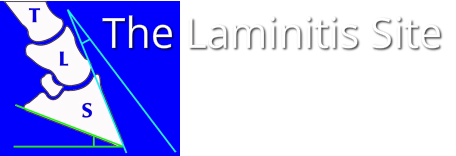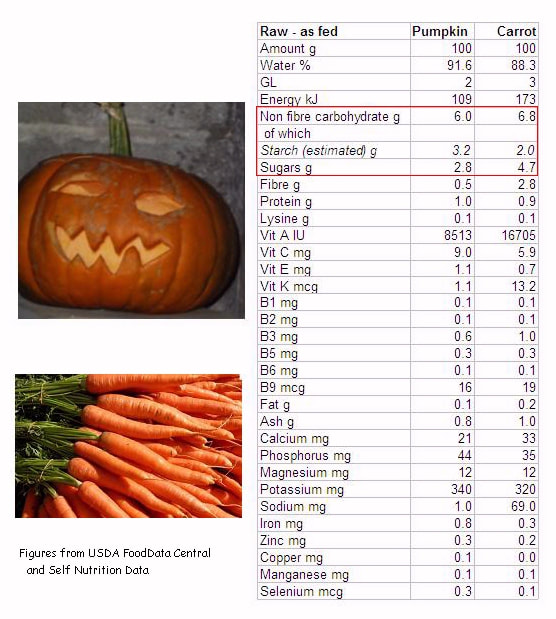Q. Can pumpkin be fed to horses, even those with EMS/PPID/insulin dysregulation?
A. As long as it's an edible pumpkin, the flesh can be fed to horses. Total sugar and starch amounts are fairly similar to carrots, with pumpkin containing more starch and less sugar than carrots, but both having around 6-7% non-fibre carbohydrates (similar to or even less than many hays on an as fed basis).
Both carrots and pumpkins contain good amounts of vitamin A (carrots have almost twice as much), but being mostly water, neither contains much else of value in terms of vitamins, minerals, protein or fats. If you want to offer your horse some pumpkin, introduce it gradually, avoid cutting it into shapes that could cause choke (avoid small cubes, stick to long slices), and only give small amounts - up to 100 g a day should be fine.
Some people argue that carrots shouldn't be fed to horses with insulin dysregulation because on a dry matter basis carrots are high in sugar, and you might be interested to calculate that pumpkin flesh is actually higher in sugar and starch (~71%) than carrots (~58%) on a dry matter basis. It doesn't matter whether you feed 100 g of carrot/pumpkin on an as fed basis or 11.7 g of carrot/8.4 g of pumpkin on a dry matter basis, they are exactly the same thing, and will give your horse around 6 to 7 g of sugar and starch, which shouldn't be a problem for most horses with insulin dysregulation when fed as part of an overall diet that keeps total sugar and starch below 10%.
A. As long as it's an edible pumpkin, the flesh can be fed to horses. Total sugar and starch amounts are fairly similar to carrots, with pumpkin containing more starch and less sugar than carrots, but both having around 6-7% non-fibre carbohydrates (similar to or even less than many hays on an as fed basis).
Both carrots and pumpkins contain good amounts of vitamin A (carrots have almost twice as much), but being mostly water, neither contains much else of value in terms of vitamins, minerals, protein or fats. If you want to offer your horse some pumpkin, introduce it gradually, avoid cutting it into shapes that could cause choke (avoid small cubes, stick to long slices), and only give small amounts - up to 100 g a day should be fine.
Some people argue that carrots shouldn't be fed to horses with insulin dysregulation because on a dry matter basis carrots are high in sugar, and you might be interested to calculate that pumpkin flesh is actually higher in sugar and starch (~71%) than carrots (~58%) on a dry matter basis. It doesn't matter whether you feed 100 g of carrot/pumpkin on an as fed basis or 11.7 g of carrot/8.4 g of pumpkin on a dry matter basis, they are exactly the same thing, and will give your horse around 6 to 7 g of sugar and starch, which shouldn't be a problem for most horses with insulin dysregulation when fed as part of an overall diet that keeps total sugar and starch below 10%.


 RSS Feed
RSS Feed